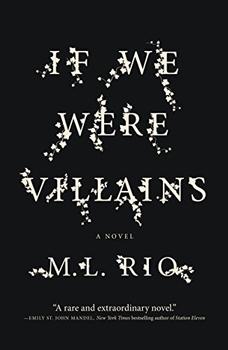Summary | Excerpt | Reading Guide | Reviews | Beyond the book | Read-Alikes | Genres & Themes | Author Bio

A Novel
by Paul MurrayA tragic comedy of epic sweep and dimension, Skippy Dies wrings every last drop of humour and hopelessness out of life, love, mermaids, M-theory, the poetry of Robert Graves, and all the mysteries of the human heart.
Why does Skippy, a fourteen-year-old boy at Dublin's venerable Seabrook College, end up dead on the floor of the local doughnut shop?
Could it have something to do with his friend Ruprecht Van Doren, an overweight genius who is determined to open a portal into a parallel universe using ten-dimensional string theory?
Could it involve Carl, the teenage drug dealer and borderline psychotic who is Skippy’s rival in love?
Or could "the Automator", the ruthless, smooth-talking headmaster intent on modernizing the school, have something to hide?
Why Skippy dies and what happens next is the subject of this dazzling and uproarious novel, unraveling a mystery that links the boys of Seabrook College to their parents and teachers in ways nobody could have imagined. With a cast of characters that ranges from hip-hop-loving fourteen-year-old Eoin "MC Sexecutioner” Flynn to basketball-playing midget Philip Kilfether, packed with questions and answers on everything from Ritalin, to M-theory, to bungee jumping, to the hidden meaning of the poetry of Robert Frost, Skippy Dies is a heartfelt, hilarious portrait of the pain, joy, and occasional beauty of adolescence, and a tragic depiction of a world always happy to sacrifice its weakest members. As the twenty-first century enters its teenage years, this is a breathtaking novel from a young writer who will come to define his generation.
With a masterful sleight of hand, Paul Murray has turned adolescence into a magical realist wonderland. This isn't Harry Potter, however - these kids are dealing with porn and drugs and lots of other heavy-duty reality. Murray navigates freely through multiple points of view, conveying the omnivorous flexibility of the boys' mental landscape and the way they exist as a sort of collective consciousness... I should say that before I began to discern flaws in the book, I had already entered deeply into it, so that my criticisms were in dialog with the themes and agendas of the novel itself. The technicolor picture Skippy Dies paints of adolescence is so engaging that by the time I made it to "Ghostland" I had already drunk the proverbial Kool-aid - the spiked punch at the Hop - and was ready to follow Paul Murray anywhere...continued
Full Review
(932 words)
This review is available to non-members for a limited time. For full access,
become a member today.
(Reviewed by Jennifer G Wilder).
What is Robert Graves doing, you might ask, in a book about rowdy teen boys? His presence is pervasive from the very first chapter, when the mysterious and beautiful new geography teacher, Aurelie, talks to Howard the Coward about how to get his history students engaged with the First World War:
"You should read them Robert Graves," she says.
"Who?"
"He was in the trenches," she replies; then adds, after a pause, "He was also one of the great love poets."
 Robert Graves (1895-1985), author of many works including I, Claudius, is perhaps most famous for his memoir, Goodbye to All That, first published in 1929 when he was 34. The memoir lays out the early traumas of life at Charterhouse, a venerable public ...
Robert Graves (1895-1985), author of many works including I, Claudius, is perhaps most famous for his memoir, Goodbye to All That, first published in 1929 when he was 34. The memoir lays out the early traumas of life at Charterhouse, a venerable public ...
This "beyond the book" feature is available to non-members for a limited time. Join today for full access.

If you liked Skippy Dies, try these:

Stop Me If You've Heard This One
by Kristen Arnett
Published 2025
From the New York Times bestselling author of Mostly Dead Things, a sparkling and funny new novel of entertainment, ambition, art, and love.

by M. L. Rio
Published 2018
Intelligent, thrilling, and richly detailed, If We Were Villains is a captivating story of the enduring power and passion of words.
If there is anything more dangerous to the life of the mind than having no independent commitment to ideas...
Click Here to find out who said this, as well as discovering other famous literary quotes!